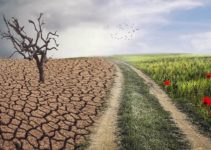The management of water resources require wise use and strategies to ensure a sustainable supply of water. This article explores the importance of implementing efficient water use practices, raising public awareness, and adopting appropriate pricing structures to address water scarcity and promote responsible water consumption. The article emphasizes the need for collective action and highlights strategies such as efficient water technologies, public education campaigns, and incentives to achieve sustainable water management and preserve this vital resource for future generations.
Table of Contents
Introduction
Water is a precious resource that is essential for all aspects of life. However, with growing populations, urbanization, and climate change, the demand for water is increasing at an alarming rate. To ensure the availability of water for future generations, it is crucial to implement effective water demand management strategies. Water demand management encourages efficient water use.
How do we manage demand to respond to the need for efficient and effective water use? Water demand management is the key to achieving this end.
Let us explore the importance of water demand management and six strategies to achieve sustainable water use in the next section.
Six Strategies in the Management of Water Demand
To be effective in managing the water resources, we should understand why there is a need for it, be conscious and efficient in using water, consider pricing incentives, inform people of the water situation, promote good practices in water use, and undertake steps to manage industrial and agricultural uses. I will expound more on these strategies in the discussion below.
1. Understanding the Need for Water Demand Management
Water scarcity is a pressing issue in many regions around the world. By implementing water demand management, we can address this issue by reducing the strain on water resources and improving water availability. It is crucial to educate individuals, communities, and industries about the importance of responsible water use to create a culture of water conservation.
Some people do not fully understand the need for water demand management because of complacency or utter disregard for water perceived to be abundant in their locality. Hence, there is a need to educate and sensitize them on the need to be mindful of their water use.
2. Efficient Water Use Practices
One of the key aspects of water demand management is promoting efficient water use practices. This involves adopting technologies and methods that minimize water wastage.
Examples include installing low-flow fixtures in households and businesses, such as low-flow toilets and aerated faucets, which can significantly reduce water consumption without compromising functionality.

Some establishments that apply water demand management strategies use innovative technologies such as the thermal evaporator in Chile. The evaporator process waste streams which have traditionally been discarded.
3. Water Pricing and Incentives
Implementing appropriate water pricing structures can incentivize individuals and businesses to use water more efficiently. By introducing tiered pricing systems where higher water consumption leads to higher costs, consumers are encouraged to be mindful of their water use.
Furthermore, offering incentives such as rebates for water-efficient appliances or landscaping can motivate people to adopt water-saving practices. Less water consumption means more available water for many users and less monthly payments.
4. Public Awareness and Education
Raising public awareness about the importance of water conservation is crucial for effective water demand management. Educational campaigns can inform individuals about simple actions they can take, such as fixing leaky faucets, practicing shorter showers, and using recycled water for non-potable purposes. Schools, community centers, and media outlets play a vital role in disseminating information and promoting responsible water use.
5. Sustainable Landscaping and Irrigation
Promoting sustainable landscaping practices is another essential aspect of water demand management. Encouraging the use of native plants, mulching, and efficient irrigation systems can significantly reduce outdoor water consumption. Drip irrigation and smart irrigation technologies, such as weather-based controllers, can ensure that water is used only when needed, minimizing waste.
6. Industrial and Agricultural Water Management
Water demand management extends beyond residential water use. Industries and agriculture are significant consumers of water resources. Implementing efficient water management practices in these sectors is crucial.
For example, industries can adopt water-efficient processes, reuse water for cooling or manufacturing, and invest in water recycling technologies. In agriculture, precision irrigation systems and improved farming techniques can minimize water usage while maintaining productivity.
Conclusion
Water demand management is essential for sustainable water use and the conservation of our precious water resources. By implementing efficient water use practices, introducing appropriate pricing structures, raising public awareness, and promoting responsible water use in various sectors, we can ensure the availability of water for future generations. It is a collective responsibility that requires the participation and commitment of individuals, communities, businesses, and governments. By working together, we can create a water-conscious society that values and conserves this vital resource for a sustainable future.



